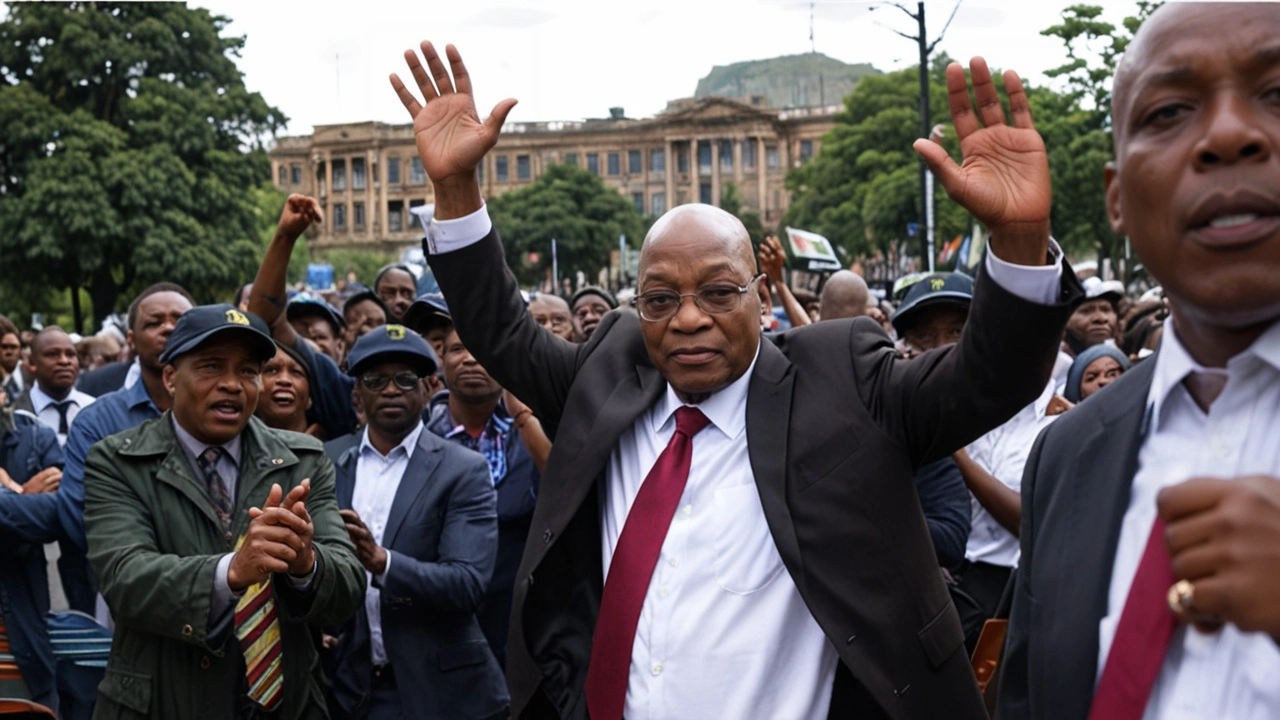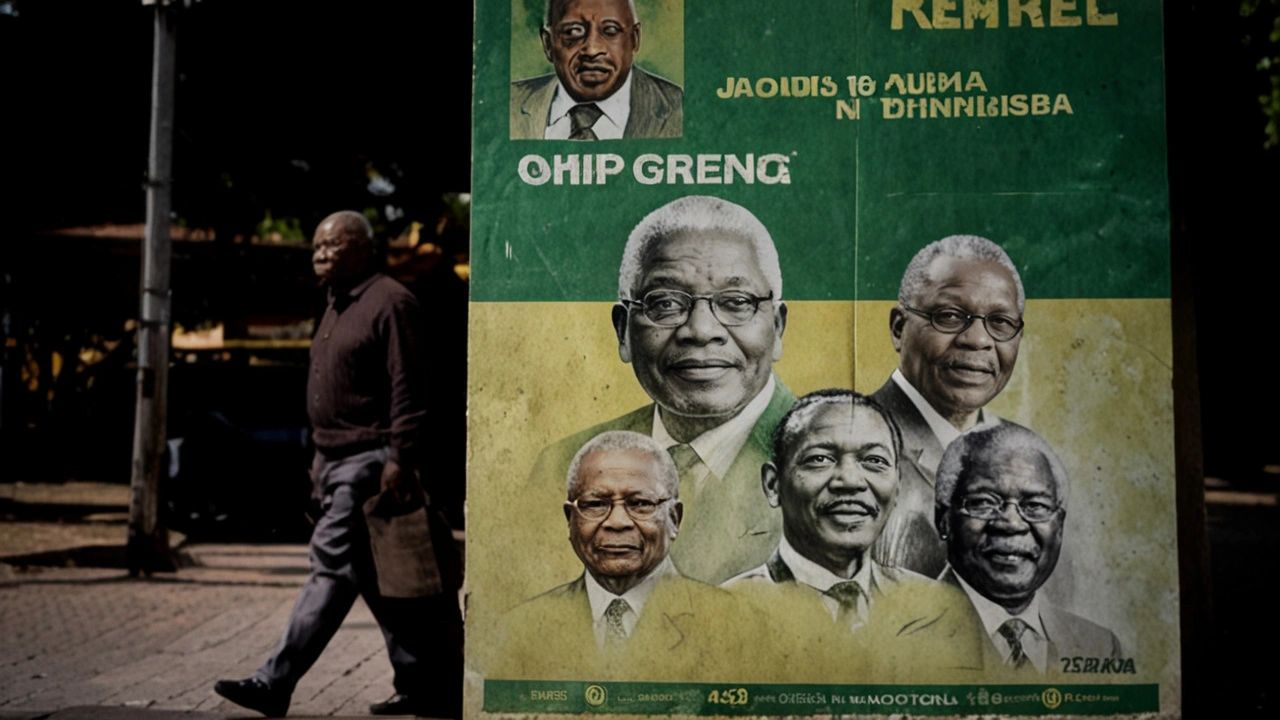Fikile Mbalula Acknowledges Jacob Zuma’s Role in the ANC’s Downfall
 Jul, 18 2024
Jul, 18 2024
Fikile Mbalula’s Bold Statement on Zuma’s Influence
In a recent jaw-dropping revelation, Fikile Mbalula, a significant player in the African National Congress (ANC), openly credited former President Jacob Zuma with the downfall of the party. As the ANC braces itself for Zuma's disciplinary committee (DC) hearing, Mbalula’s remarks have shone a spotlight on the former president’s colossal influence over the party’s trajectory in recent years. These comments have not only stirred the political pot but have also provided a fascinating window into the internal workings and conflicts within the ANC.
Mbalula’s assertion is monumental in its implications. The ANC has long been a titan in South African politics, and Zuma’s tenure remains one of the most controversial periods in its history. From 2009 to 2018, Zuma’s presidency was marred by allegations of corruption, maladministration, and economic decline. While his supporters laud his efforts in areas such as infrastructure and education, his detractors emphasize the numerous scandals that plagued his rule, including the infamous Gupta family saga, which significantly tarnished the ANC’s reputation.
The repercussions of Zuma’s presidency rippled through the ANC, leading to a stark divide within the party. On one side, loyalists who continue to rally behind the embattled former president, arguing that his actions were necessary for the country's socio-economic reform. On the other, critics within the ANC who believe that Zuma’s methods and the controversies that ensued have eroded public trust and weakened the party’s standing. Mbalula’s latest comments appear to underscore the sentiments of the latter group, suggesting that Zuma's leadership ultimately culminated in significant setbacks for the ANC.

Internal Struggles and Preparing for the Disciplinary Committee
As the ANC preps for Zuma’s disciplinary hearing, the stakes are undoubtedly high. The disciplinary committee’s purview involves tackling allegations against party members and ensuring adherence to the party’s principles and policies. For Zuma, a figure with enormous influence and a controversial legacy, this hearing could be a turning point. The outcome may either solidify the party’s stance on accountability or further deepen existing fractures within its ranks.
Mbalula’s remarks give an insight into the broader narrative that the ANC seems to be grappling with. Heavily implying that Zuma bears responsibility for the ANC’s challenges could be seen as an attempt to reframe the party’s historical narrative and perhaps to distance it from the shadow of Zuma’s presidency. This is especially crucial as the party seeks to rebuild and regain the public trust ahead of inevitable electoral contests.
The internal dynamics of the ANC have long been a subject of public intrigue and political analysis. The party’s storied history, from its role in the fight against apartheid to its governance in a democratic South Africa, has been punctuated with both triumphant and turbulent chapters. The ongoing debacles surrounding Zuma highlight a critical episode reflective of broader challenges in balancing legacy, leadership, and accountability within the party.
Broader Implications for South African Politics
The internal workings of the ANC are not just significant for the party itself but hold broader implications for South African politics at large. The ANC’s struggles and stances ripple through the nation’s political ecosystem, influencing the stability and direction of government policy. As a dominant force in South Africa's political landscape, the party's ability to address its internal issues directly impacts its governance efficacy and public perception.
Mbalula's attribution of the ANC's defeat to Zuma is a candid acknowledgment that could resonate with the South African electorate, many of whom have become increasingly disillusioned with the party’s internal squabbles and scandals. It’s a stark reminder that the actions of a single influential leader can have profound and lasting effects on party stability and public trust. This acknowledgment might be seen as a step towards transparency and accountability, which are crucial for any political entity aiming to maintain relevance and support.
The ANC’s future hinges on how it navigates these turbulent waters. Rebuilding trust, strengthening internal cohesion, and presenting a unified front will be essential for the party. How Zuma’s disciplinary hearing unfolds could set precedential tones for future leadership accountability within the ANC, sending clear messages about where the party stands regarding integrity and governance.
The Road Ahead for the ANC
In many ways, the ANC’s current predicament serves as a critical juncture for reflection and redirection. Reassessing leadership approaches, reinforcing constitutional values, and genuinely addressing past missteps could pave the way for a renewed and reinvigorated party identity. The role of figures like Mbalula, who are not afraid to voice hard truths, might be instrumental in driving these changes.
As the ANC steps into this new phase, with its historic legacy in tow, its leaders must strive to align their strategies with the evolving aspirations of the South African populace. This involves not only tackling internal discord but also effectively addressing pressing national issues such as economic inequality, unemployment, and social justice. The path will not be easy, but with deliberate and resolute action, the ANC can hope to restore its standing and continue its leadership role in South Africa’s democratic journey.